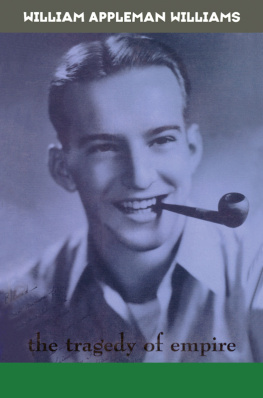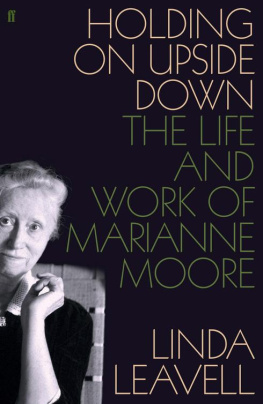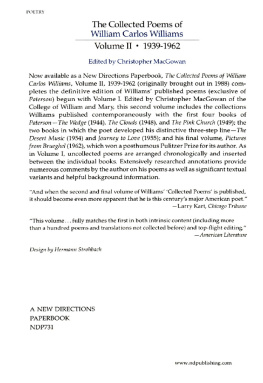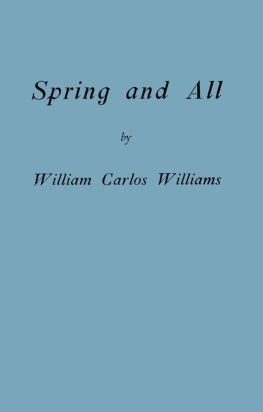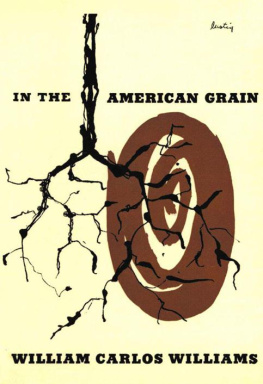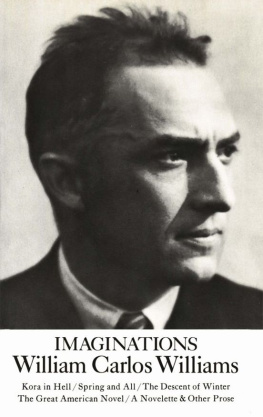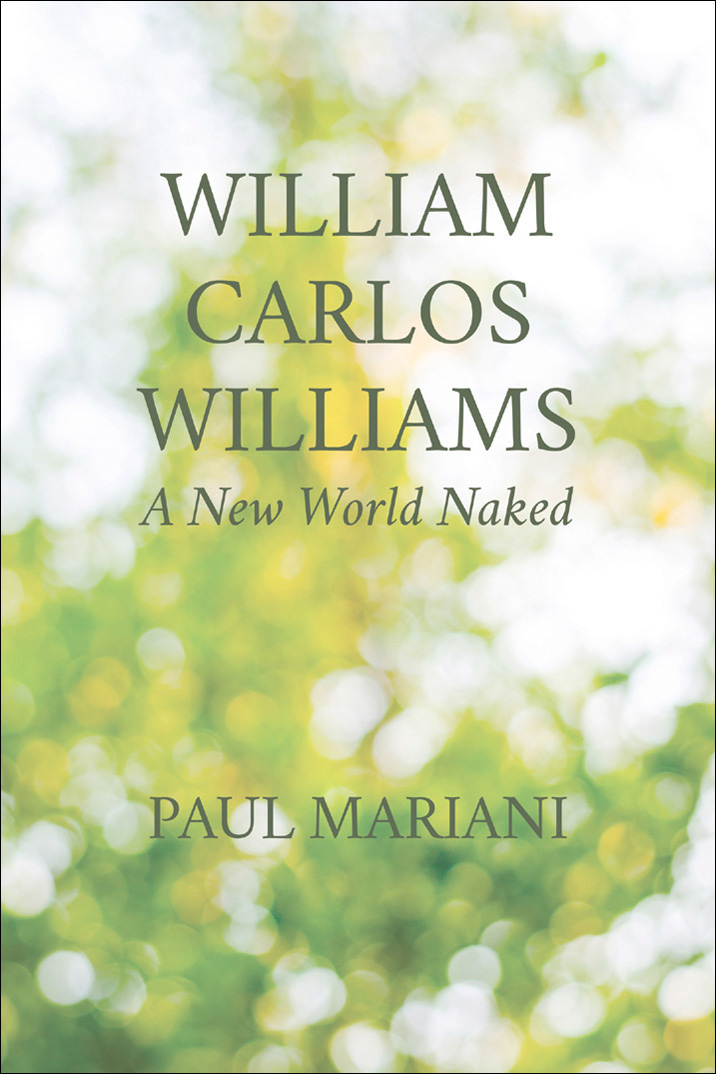
ALSO BY PAUL MARIANI
Biography
Dream Song: The Life of John Berryman (1990)
Lost Puritan: A Life of Robert Lowell (1994)
The Broken Tower: A Life of Hart Crane (1999)
Gerard Manley Hopkins: A Life (2008)
The Whole Harmonium: The Life of Wallace Stevens (2016)
Poetry
Timing Devices (1979)
Crossing Cocytus (1982)
Prime Mover (1985)
Salvage Operations: New and Selected Poems (1990)
The Great Wheel (1996)
Deaths and Transfigurations (2005)
Epitaphs for the Journey: New, Selected, and Revised Poems (2012)
Criticism
A Commentary on the Complete Poems of Gerard Manley Hopkins (1970)
William Carlos Williams: The Poet and His Critics (1975)
A Usable Past: Essays on Modern and Contemporary Poetry (1984)
God and the Imagination: Poetry, Poets, and the Ineffable (2002)
Memoir
Thirty Days: On Retreat with the Exercises of St. Ignatius (2002)

Published by Trinity University Press
San Antonio, Texas 78212
Copyright 1981 by Paul Mariani
All rights reserved. No part of this book may be reproduced in any form or by any electronic or mechanical means, including information storage and retrieval systems, without permission in writing from the publisher.
First published as a Norton paperback in 1990.
Cover design by Sarah Cooper
Cover image: istock.com/ZeroPhanToMs
ISBN 978-1-59534-765-7 ebook
Grateful acknowledgment is made to New Directions Publishing Company for permission to use excerpts from White Mule, 1937; Life along the Passaic River, The Complete Collected Poems, 1938; In the Money, 1940; The Broken Span, 1941; The Wedge, 1944; Paterson 1, 1946; Paterson 2, A Dream of Love, 1948; Selected Poems, Paterson 3, 1949; Collected Later Poems, Make Light of It, Collected Short Stories, 1950; Paterson 4, Autobiography, Collected Earlier Poems, 1951; The Build-Up, 1952; The Desert Music, Selected Essays, 1954; Journey to Love, 1955; Paterson 5, In the American Grain, I Wanted to Write a Poem, 1958; Many Loves, The Farmers Daughters, 1961; Pictures from Brueghel, 1962; Imaginations, 1970; The Embodiment of Knowledge, 1974; A Recognizable Image: William Carlos Williams on Art and Artists, 1978.
Previously unpublished letters by William Carlos Williams and Florence H. Williams and excerpts from previously unpublished manuscripts of William Carlos Williams are copyrighted by William Eric Williams and Paul Williams, 1981.
The material on the following works has been published earlier in substantially different versions: on Man Orchid in Massachusetts Review, 1973; on Paterson in Denver Quarterly, 1978; on Asphodel in Contemporary Literature, 1973.
The paper used in this publication meets the minimum requirements of the American National Standard for Information SciencesPermanence of Paper for Printed Library Materials, ANSI 39.481992.
CIP data on file at the Library of Congress
20 19 18 17 16 | 5 4 3 2 1
For Eileen:
the feminine principle, the radiant gist. Without you it would all turn back to dust again.
Table of Contents
Guide
Contents
S ixteen years ago I walked into a small bookshop near Queens College in New York and spotted a paperback called Paterson. Paterson? Hell, I knew Paterson. My mothers family had come from that area of New Jersey: Lodi, Clifton, Passaic. And her cousin and her husbandMinxie and Turk Lacerzahad lived in a ramshackle but clean two-story home three blocks away from the falls. I could remember as a kid back in the late 1940s scrambling under the rusting barrier fence with my younger brother and making my way over the beer cans and garbage to the edge of the falls to stare down trembling at the furious waters boiling below me. I remember hurling cans and rocks over the edge and watching them disappear. Paterson. Who would want to write a poemand a book-length poem at thatabout a sinkhole like Paterson?
When I finally discovered Williams I had already been shaped by the universities in the New Criticism. T. S. Eliots Waste Land and James Joyces Ulysses were the key texts to understanding the modern temper. Had not critic after critic in this country said as much? For radical experimentation I had turned to the early Robert Lowell of Quaker Graveyard in Nantucket, but for the most part it was the English classics and the time-honored four-hundred-year-old tradition: the Jacobean playwrights, Burke, Gibbon, Keats, Coleridge, Carlyle, Tennyson, Hopkins. Like Lowell twenty years earlier, I tried to pull up to the gas station with a model of poetry looking like a triple-masted schooner sporting gingerbread outriders. In short, I had been a painfully slow learner.
It was really only when I began teaching modern poetry at the University of Massachusetts with my fresh Ph.D. in the fall of 68 that I finally realized what I had been missing in not paying more attention to William Carlos Williams, who by that point had already been dead a full five years. What Williams did for me was to make me seriously reexamine for the first time all of my classical assumptions about literature and the Great Tradition. I argued with Williams, fought with him, wrestled, despaired. And in a remarkably short time he became the single most important American poet of the twentieth century for me, with Stevens right behind him. In the early 1970s I spent three years writing what I then saw was a necessary homework book: a book-length commentary on everything I could lay my hands on that had been published on Williams up to that point, in an attempt to determine why the critics had for so long either dismissed or tried actually to destroy Williams poetic reputation. But this man, I soon learned, was tough enough and his poetry so intrinsically good that it would necessarily surface in its own good time. I therefore had the good fortune to witnessand recordnot only Williams acceptance by a wider and wider readership but the rise as well of a truly central poetic presence, more central, finally, than Eliot and Pound and perhaps even Frost. And yet that uphill solo fight of Williams had not been, even in his lifetime, without its profoundly disturbing costs, including the mans own physical health.
I had thought next to write the biography of the very poem that had by then become an obsession with me: Paterson. I wanted to determine its origins, its influences, its development and open-ended processive direction. But as I worked with that poem over several years, I realized that what I was really after was the inner life of Williams himself. Finally, tentatively, my teeth shaking, I realized that what Id wanted to do from the beginning was to discover the real biography of this extraordinary revolutionary. No day has passed since 1970 that I have not thought about Williams; his life and his achievement have becomeas my friends and family will amply testifyan obsession which, hopefully now, I can lay somewhat to rest, having blooded Williams life with so much of my own.


